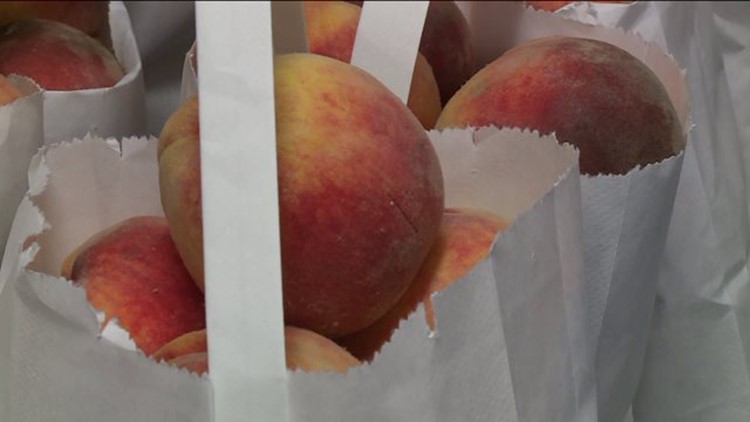SOUTHINGTON--Two well known farmers--Peter Rogers of Rogers Orchards in Southington and Jonathan Bishop of Bishops in Guilford--are rich in Connecticut farming history, but this year was a different story.
While Bishop's Orchards in Southington was blessed enough to have half its peach crop survive, the crop at Rogers Orchards in Southington was decimated.
Rogers said, "We didn’t have a single peach in Southington."
Connecticut once was the peach capital of the U.S., but not this year; most orchards in the state were left with barely any peaches. How did it happen?
"The trees never really adjusted right to winter," Rogers explained.
According to Bishop, "We had 70 degrees at Christmas time--and the peach buds actually started to swell, which is not a good thing when you have so much of the winter left to go." He added that the reverse--a cold stretch--was hard to weather as well. "We got down to about minus 8 degrees in our coldest spot. In the case of peach trees, they’ll take about minus 10 degrees."
Rogers agreed that the extreme warmth to the extreme cold was hard. The 70-degree hot stretch was "leading up to a really hard freeze in February," he said, during which "Rogers Orchards had minus 13."
So while Southington, which is inland, had zero peaches to speak of, farms along the shoreline like Bishop's weren't as hard hit since the temperatures remained slightly more mild.
Now, Rogers is looking forward to next season, since this year he had to rely on getting peaches from Pennsylvania to sell at his farm. So how does he stop a repeat episode?
"Trickle irrigation that can help these trees going into a winter like that. And irrigating, these trees are maybe a touch healthier. They're not as stressed."
Rogers is just grateful that after 200 years, his farm's customers understand how hard farming can be and have remained loyal, despite the non-local produce.
But first? Apple time! "We like what we see out in the field," Rogers said.



